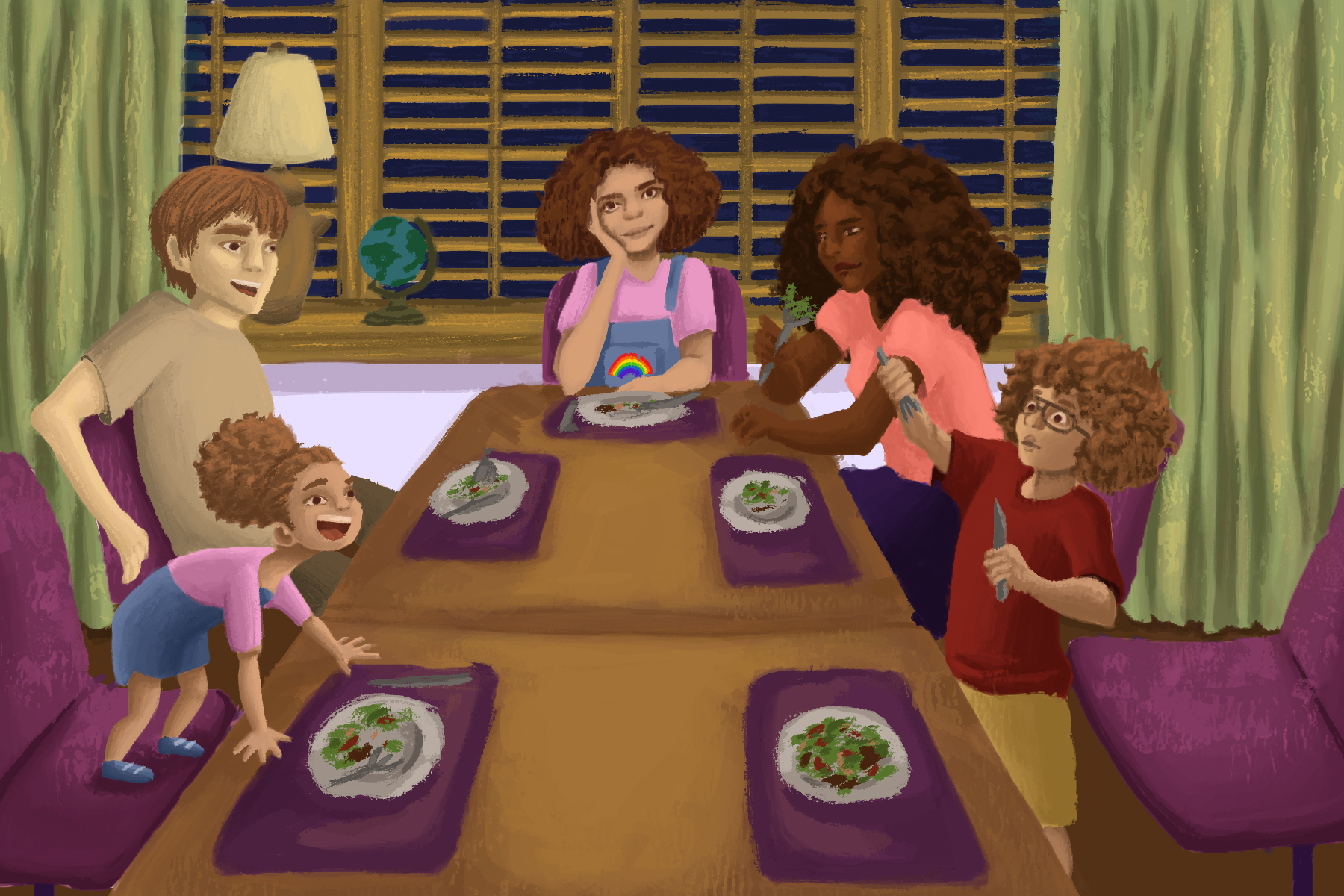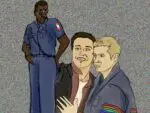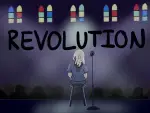“Mixed-ish,” ABC’s newest comedy set to premiere in the fall, has recently stirred up concerns within the black community. The trailer debuted in May, and it wasn’t well-received. There isn’t enough material to form a sound opinion on the show’s context because it hasn’t aired, but so far, those who have spoken aren’t happy.
However, there are definitely some benefits of airing a sitcom that centers around a mixed family. As a biracial young woman, I want to explore both sides of the polarizing perspectives.
Kenya Barris and Peter Saji, the creators of ABC’s “Black-ish,” team up once again for another spinoff. If you’re a fan of “Black-ish,” you know that “Grown-ish” depicts the college life of the Johnson’s eldest daughter, Zoey. “Mixed-ish,” on the other hand, is a prequel that regards the early life of Rainbow Johnson, the mother in “Black-ish,” played by Tracee Ellis Ross.
Set in the 1985, “Mixed-ish” follows Rainbow, also known as Bow, and her family as they try to navigate their new lives in the suburbs after being kicked out of their commune. Bow’s parents are an interracial hippie-couple, and the three-minute trailer shows Bow and her younger siblings going to a public school for the first time. White and black students point and laugh at them because they don’t exactly fit the mold of either race.
In the trailer, viewers can hear adult Bow’s commentary of her childhood experience.
“My parents had sent us out into the world with absolute no warning that being ‘mixed’ was even a thing!” Bow said. “Imagine being the new kid when no one in the world is like you.”
Bow continues to explain that today’s mixed kids can look up to biracial celebrities like Drake, Misty Copeland, Colin Kaepernick, Barack Obama and Meghan Markle. But during Bow’s childhood, she didn’t have many role models who looked like her.
Sounds harmless, right? I thought so, too. I was thrilled to see a show about biracial kids and the confusing struggles of whether or not to conform to one race or the other.
Disclaimer: I’m not part black and part white; I’m Latina and white, but I’ll get more into that later. It’s perfectly acceptable to consider me ignorant in this context because I’m not part of the black community — nor do I claim to represent the black community in any way. These are simply real critiques and opinions I’ve gathered.
When I researched initial audience reactions about the “Mixed-ish” trailer, I expected to find eager fans anxious to know the premiere date, because ABC has yet to release it. However, I was surprised to see that audiences had many concerns about the new comedy.
“Black-ish” fans on social media were quick to call out “Mixed-ish” as another show that proves the black community is often misrepresented by mixed or light-skinned actors in Hollywood, which leads to colorism.
According to Alice Walker, the Pulitzer Prize winning author believed to have created the term, colorism is “prejudicial or preferential treatment of same-race people based solely on their color.” It’s derived from racism in the sense that white standards of beauty reign over other ethnicities. Colorism is a major topic of discussion, particularly in the black community.
Many viewers also claim that the trailer victimizes biracial people, as opposed to sheading light on the fact that mixed people are often preferred over black people in terms of appearance and personality. The scene in which Bow and her siblings get bullied and ostracized seems unrealistic to most viewers.
Audiences noticed a major change through the role of Anna Deavere Smith, a fair-skinned woman who plays Bow’s mom in “Black-ish.” In “Mixed-ish,” Tika Sumpter, a black woman, was casted for the part. This decision may have been the creators’s way of unsympathetically representing dark-skinned people, regardless of whether or not it fit the show.
Fans hope that the writers and producers of “Mixed-ish” will address these concerns by candidly discussing them in episode plot points and character dialogue. After all, “Black-ish” is fearless when it comes to tackling difficult social issues in an honest yet humorous way.
So there’s still hope for “Mixed-ish.”
By the looks of the trailer, the show will most likely discuss the challenges that biracial and multiracial people endure, especially as children, but I believe that these challenges aren’t any worse than the social injustices faced by people who are fully African American, Latino, Asian or Native American. I’m aware that biracial people, especially those who are part white, obtain a sense of respect in society compared to fully ethnic individuals. The main challenge that mixed people face is insecurity about their identity.
In Season 3 of “Black-ish,” Bow discusses many of the struggles that come with growing up biracial. The show features hilarious flashbacks of Bow during her high school and college years, which convey the confusing process of trying to “choose a side.”
Many biracial people, including myself, struggle to find and accept the multitude of cultures found in their family trees. Societal standards tend to classify people in an “all or nothing” manner — if you’re not fully white or fully Latino, then you must not be either, right? If you don’t look as light as your white classmate or as dark as your black classmate, then what are you? If you don’t fluently speak the language of your grandparents, you must not understand your Asian roots.
It’s these prideful attitudes within cultures that make mixed individuals feel like they don’t entirely belong to any community.
Code Switch, an NPR show known to have intimate conversations about race and identity, aired an episode titled “A Racial Impostor Epidemic” in January 2018.
“We’re loosely calling this feeling racial impostor syndrome,” Gene Demby, the co-host of Code Switch, said. “It’s when folks feel like they don’t fit in with their people – or, I guess, the people who are presumed to be their people, I guess.”
Listeners from all ethnicities and backgrounds flooded the show’s inbox with hundreds of messages and voiced their experiences on social media.
Here’s what two unidentified listeners had to say on the matter:
“Because I don’t look mixed, I never felt as though I quite fit in. In a way, I think I feel guilty for even thinking I’m part black, like I don’t deserve to identify that way.”
“My parents do not read or speak Japanese. I’m too whitewashed and Americanized to fully understand and relate to the immigrant experience but never seen as an American.”
These are common concerns that biracial and multiethnic people undergo for most of their lives, which is why “Mixed-ish” should be the perfect opportunity to tell a diverse story about a group of people with their own individual hardships.
I’m curious to see if the creators can successfully produce a show that is currently causing so much tension in the black community. The crew has time to address these concerns, and I hope they can tastefully and respectfully create a show that adequately represents mixed people without minimizing black culture. They might not make everyone happy, but what separates “Black-ish” from other sitcoms is that it is known to unapologetically create meaningful conversations about various racial issues, even when it is uncomfortable.
















